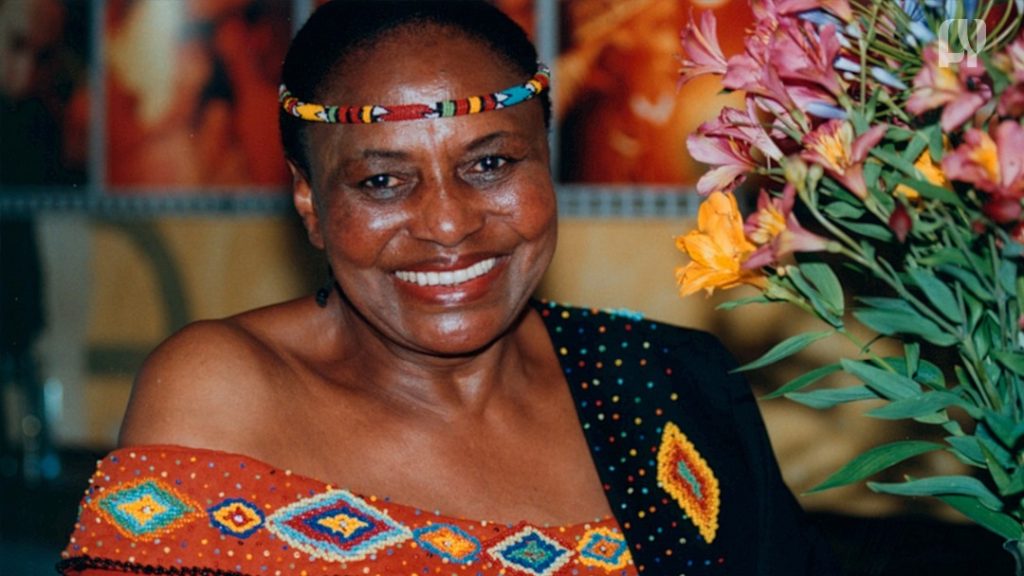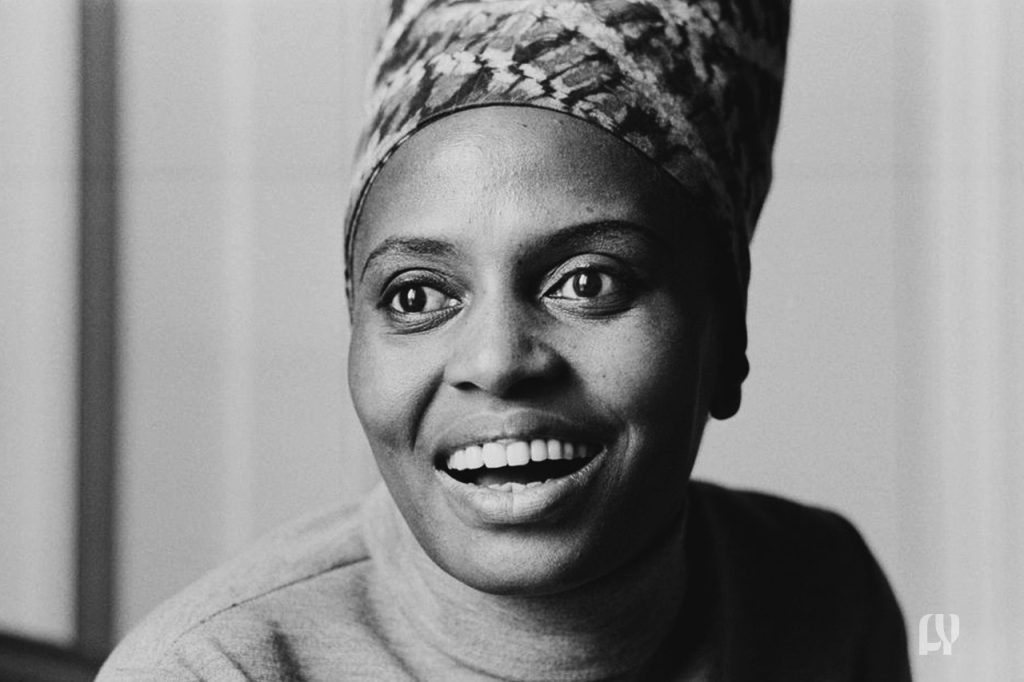Mama Africa: The Enduring Legacy of Miriam Makeba, Voice of Freedom
Early Life and the Birth of Mama Africa
Miriam Zenzi Makeba was born on March 4, 1932, in the heart of Johannesburg’s Prospect Township. Later, adoring millions christened her “Mama Africa.” Her Xhosa name, Zenzi, meaning “to love oneself,” was a foreshadowing of her life. It was a life dedicated to empowering others through unyielding self-respect and cultural pride. Miriam Makeba was the daughter of a Swazi mother and Xhosa father.
- Exile: Mama Africa Unwavering Stand Against Apartheid
- Musical Innovations: Mama Africa’ Global Anthems
- Personal Struggles: The Human Behind the Icon
- Mama Africa’s Return and Final Act
- The Immortal Echo of Mama Africa
- Key Milestones in Miriam Makeba’s Life and Career
- Why “Mama Africa”?
- Frequently Explored Questions About Miriam Makeba
Her childhood was steeped in the rhythms of tradition. She also faced the harsh realities of apartheid. Her father died early, which forced her into domestic labour by age 18. Her mother’s role as a sangoma (traditional healer) rooted her in the spiritual and musical heritage of her ancestors.
“I sang in the choir, I sang at home, I sang everywhere,” Makeba once recalled. By her teens, she was performing with the Cuban Brothers and Manhattan Brothers, blending African folk with American jazz. Her 1956 debut album, Lovely Lies, marked South Africa’s first Black woman-led studio recording. Qongqothwane (The Click Song) is a Xhosa wedding anthem featuring resonant tongue clicks. It was this song that catapulted her into the global spotlight. She found herself unwittingly caught in a political storm.

Exile: Mama Africa Unwavering Stand Against Apartheid
In 1960, after starring in the anti-apartheid documentary Come Back, Africa, Makeba boarded a plane to Venice for its premiere. She would not return to South Africa for 31 years. She petitioned the United Nations in 1963 to condemn apartheid. As a result, the apartheid regime revoked her citizenship. They also banned her music. Overnight, Mama Africa became a nomad, her passport replaced by honorary citizenship from nine nations, including Guinea and Algeria.
I never understood why I couldn’t come home.
“I never understood why I couldn’t come home,” she later confessed. Her exile, amplified her voice. She teamed with Harry Belafonte. Together, they won a Grammy in 1966 for An Evening with Belafonte/Makeba. It was a groundbreaking fusion of Zulu lullabies and protest anthems. Her 1967 global hit Pata Pata was a dance tune she’d written in 1956. It became a paradoxical symbol. It was a joyful melody that masked the pain of displacement.
Musical Innovations: Mama Africa’ Global Anthems
Mama Africa’s genius lay in her ability to weave activism into melody. Soweto Blues (1977) was penned by ex-husband Hugh Masekela. It immortalised the 1976 Soweto Uprising. During this uprising, hundreds of students were massacred for protesting Afrikaans-only education. Her collaborations stretched from Nina Simone to Paul Simon, but she refused to compromise her roots. “I want to remind people of who they are,” she insisted.
Her 1960s repertoire introduced the world to mbube (Zulu choral music) and marabi (township jazz). Yet her most revolutionary act was simply singing in Xhosa, Zulu, and Sotho—languages apartheid sought to erase.
Personal Struggles: The Human Behind the Icon
Behind the regal stage presence lay a life marred by trauma. Her first marriage at 17 to James Kubay ended in abuse. Their daughter, Bongi, died tragically at 36 after a secretive pregnancy. Makeba’s 1968 marriage to Stokely Carmichael (Black Panther leader) drew FBI scrutiny, forcing her to flee the U.S. for Guinea. Financial ruin followed when promoters blacklisted her.
“I’ve lost marriages, my child, my country… but never my voice,” she declared. In Guinea, President Sékou Touré granted her diplomatic status. She adopted the stage name Mama Africa. It was a mantle she carried until her final breath.
Mama Africa’s Return and Final Act
Nelson Mandela’s 1990 release paved the way for her emotional homecoming in 1991. “It was like breathing again,” she wept. Yet her fight wasn’t over. She founded the Makeba Centre for Girls in 2002. The centre shelters victims of abuse. She also campaigned for HIV/AIDS awareness after her granddaughter’s death from the disease.
On November 9, 2008, after collapsing mid-performance in Italy, Mama Africa died of a heart attack. Her last song? Pata Pata.
The Immortal Echo of Mama Africa
Miriam Makeba’s legacy transcends borders. She was the first African artist to win a Grammy and speak at the UN. Her nine passports, four marriages, and 30+ albums narrate a life of relentless courage. Today, her voice echoes in Beyoncé’s Spirit, Angélique Kidjo’s tributes, and South Africa’s Constitution—which she indirectly shaped.
“She taught us that freedom sings,” remarked Mandela. And in every click, every note, Mama Africa’s song endures.
Key Milestones in Miriam Makeba’s Life and Career
Key Milestones in Miriam Makeba’s Life and Career
| Year | Event | Significance |
|---|---|---|
| 1932 | Born in Johannesburg | Entered the world under apartheid’s shadow; destined to defy it. |
| 1956 | Releases Lovely Lies | First black South African woman to record an album. |
| 1960 | Exiled from South Africa | Banned after exposing apartheid in Come Back, Africa. |
| 1963 | UN Speech Against Apartheid | First black woman to address the UN General Assembly. |
| 1966 | Grammy Win with Harry Belafonte | Historic victory for African music on a global stage. |
| 1968 | Marries Stokely Carmichael | Faces U.S. backlash, relocates to Guinea; becomes diplomat and icon. |
| 1977 | Releases Soweto Blues | Anthem for the anti-apartheid movement; collaboration with Hugh Masekela. |
| 1991 | Returns to South Africa | Embraces Mandela post-prison; resumes activism at home. |
| 2002 | Founds Makeba Centre for Girls | Champions education and safety for marginalized girls. |
| 2008 | Passes Away in Italy | Dies mid-performance, immortalized as a global symbol of resistance. |
I’ve lost marriages, my child, my country… but never my voice.
Why “Mama Africa”?
The title wasn’t self-given. Fans bestowed it in the 1970s as she traversed 68 countries, singing in 23 languages. “Africa has many mothers, but only one Mama Africa,” remarked Senegal’s first president, Léopold Sédar Senghor. To wear the name was to bear the continent’s joys and sorrows—a duty she upheld until the end.

Frequently Explored Questions About Miriam Makeba
Why was Miriam Makeba called Mama Africa?
Miriam Makeba earned the title “Mama Africa” for her role as a unifying voice for the continent. Her music and activism celebrated African culture and resilience, making her a symbol of hope and pride for millions.
What was Miriam Makeba’s cause of death?
Miriam Makeba died of a heart attack on November 9, 2008, after collapsing during a performance in Italy. She had just finished singing her iconic hit, Pata Pata.
Why was Miriam Makeba exiled from South Africa?
Makeba was exiled in 1960 after testifying against apartheid at the United Nations. The South African government revoked her citizenship and banned her music in retaliation.
What is Miriam Makeba’s most famous song?
Miriam Makeba’s most famous song is Pata Pata, a vibrant dance track that became a global hit in 1967. Another iconic song is The Click Song (Qongqothwane), which showcased her Xhosa heritage.
How did Miriam Makeba contribute to the fight against apartheid?
Makeba used her music and international platform to expose the injustices of apartheid. She addressed the UN. She collaborated with activists. She performed songs like Soweto Blues to rally global support for the anti-apartheid movement.
Miriam Makeba’s story isn’t history—it’s a compass. Mama Africa showed the world that melody is mightier than bullets. She taught that home isn’t a place but a people. Forever Yena honours her unbroken spirit.



